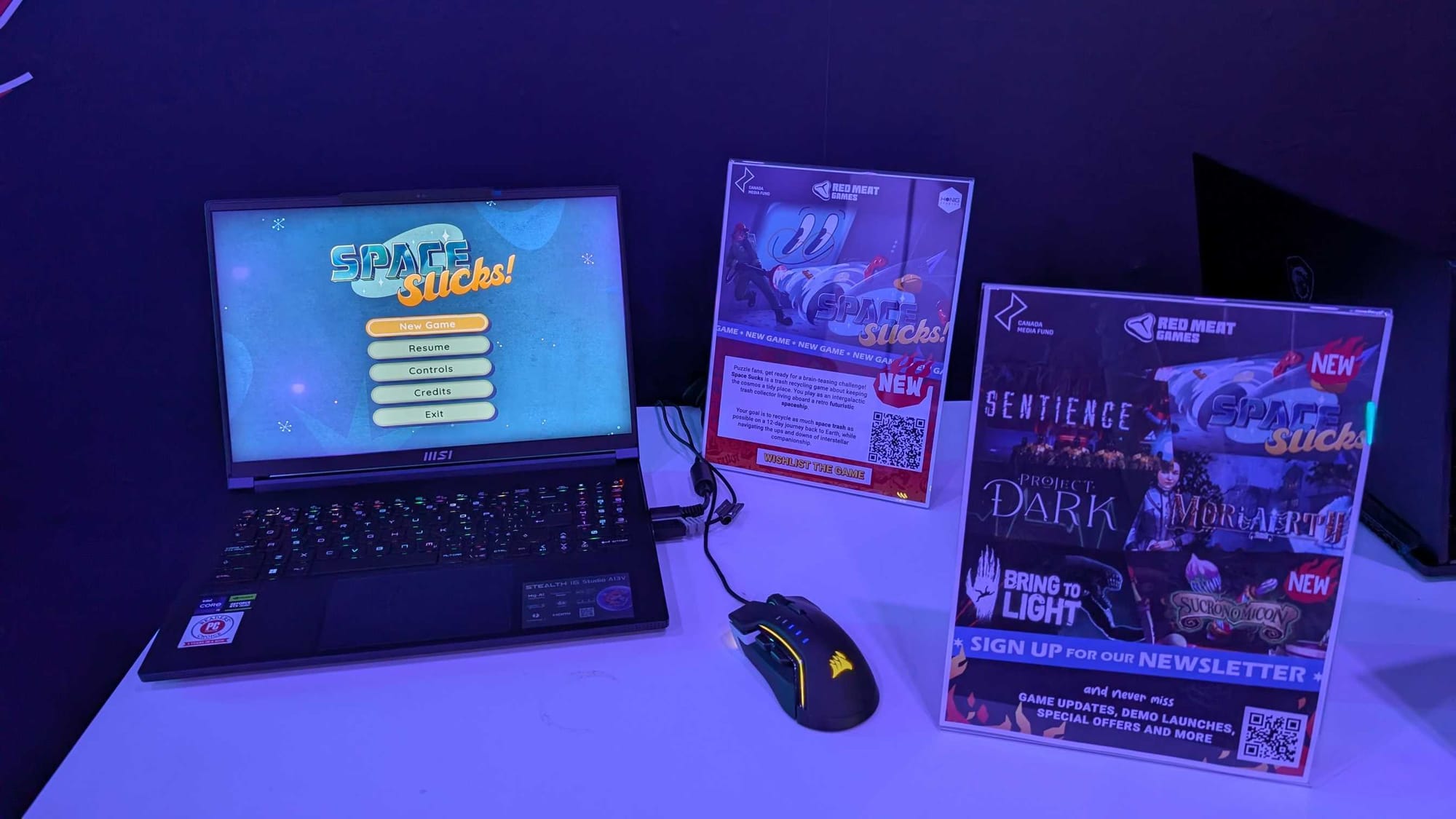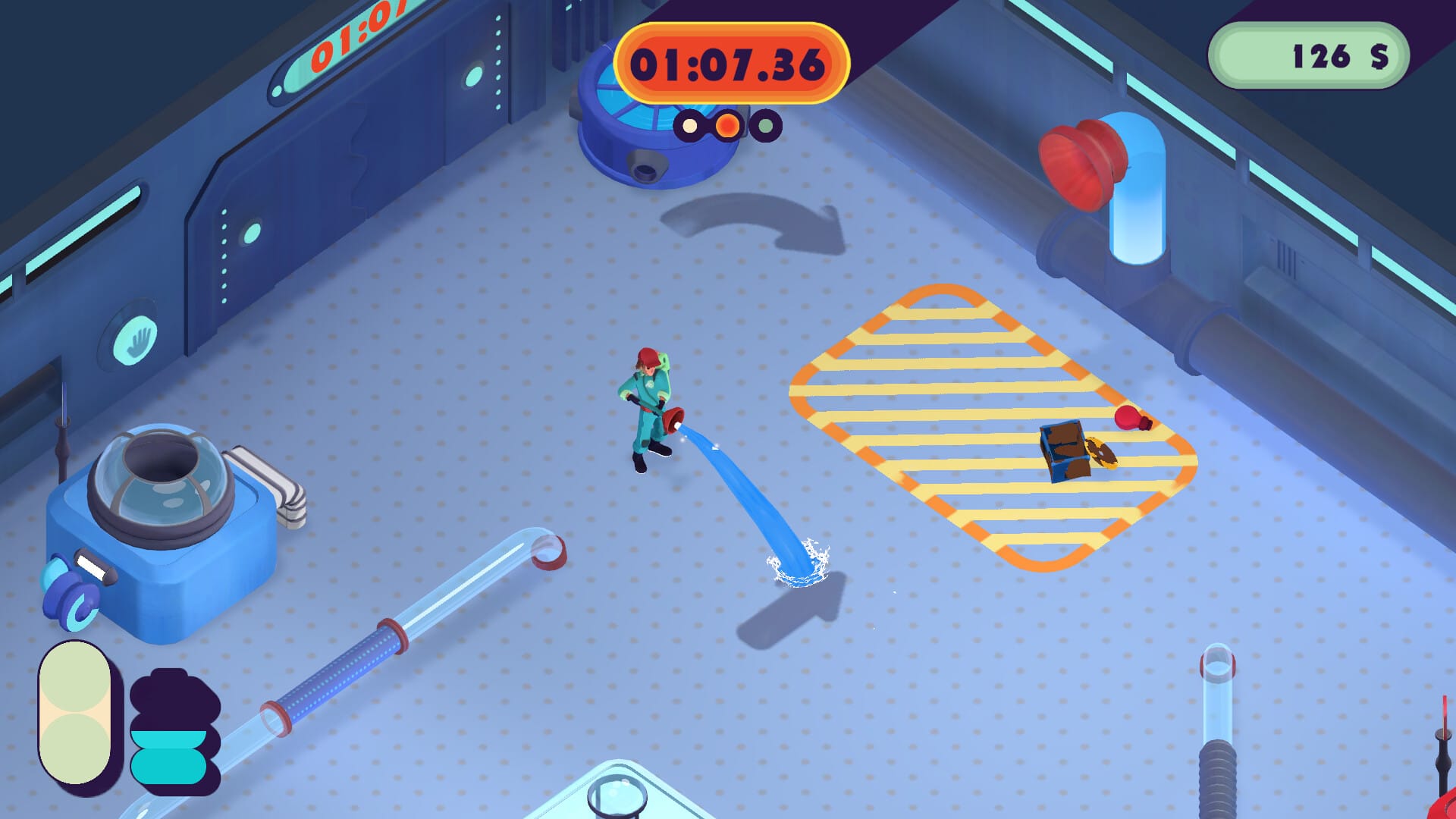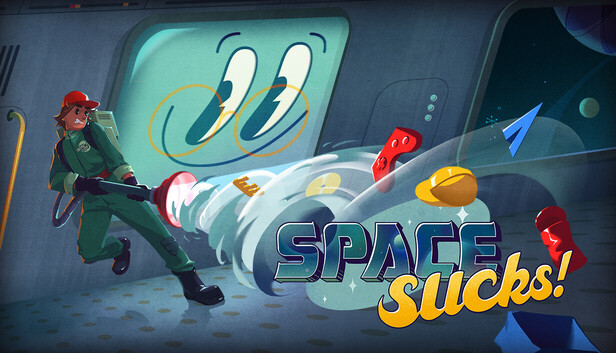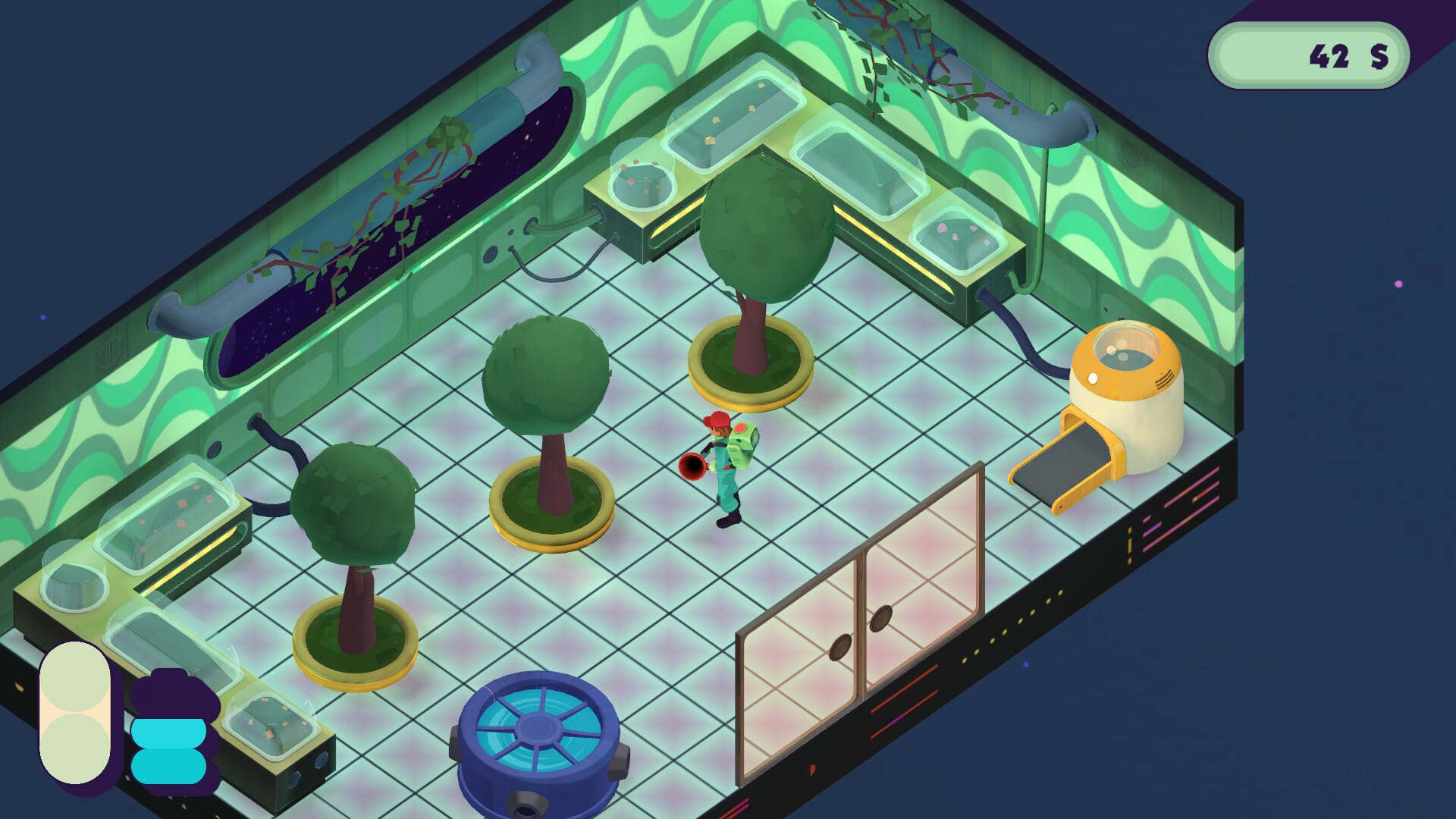Space Sucks: The Indie Game That Won Me Over at Pixel Power Play

This June was the first-ever Pixel Power Play—a brand-new event that instantly made its mark for anyone passionate about games. Since A Gaming Network was a co-host, I went in with high hopes but didn't expect to find a game I'd be thinking about days later. That game was Space Sucks.
Right from the start, Space Sucks hooked me with its perfect mix of frantic resource management and strategy. Every round, I caught myself thinking, "Just one more try," as I optimized my junk collection routes and experimented with new tactics. It's the kind of game that rewards curiosity and persistence—the more you play, the more you want to master it.

Curiosity got the best of me, so I chatted with the Space Sucks team on the show floor. Their marketing crew was friendly and passionate, but my post-event communication with Curtis Collier, Senior Designer and Project Manager at Red Meat Games, really brought the project's journey to life.
Curtis and the team explained, "Space Sucks is a collaborative project developed in partnership between Red Meat Games and Honig based in Germany. This international co-production was made possible through the Canadian Media Fund and the Medienboard Berlin-Brandenburg funding initiative."
The game's origins are as quirky as its title. Curtis and the team shared, "The project began with the question: What if someone dated their everyday virtual assistants. Over time, this concept evolved through several iterations, including survival gameplay elements. Despite these shifts, one constant has remained: the space setting. The theme of isolation in space naturally emphasizes the intimacy and focus of interacting with an AI companion."
What really sets Space Sucks apart is how it blends genres. Curtis and the team told me, "As we explored game mechanics centered on dating an AI, we didn't land on a game loop that felt engaging and sustainable. This led us to pivot toward a core mechanic with more inherent gameplay tension: collecting and recycling space junk. This introduced bursts of high-energy, stress-inducing action, naturally contrasting with slower, more reflective moments spent interacting with the ship's AI. These moments are breaks between collection shifts, adding emotional depth and balance."

That balance between adrenaline and quiet reflection makes the game feel so fresh.
Another standout feature is how Space Sucks uses the debris you collect as a way to tell its story. Curtis and the team explained, "Narratively, the space junk itself became a tool for storytelling. Among the debris, players can discover meaningful relics from their life back on Earth. These items serve as narrative touchstones and as mechanisms for character development—teaching the AI more about the player's past, while simultaneously revealing more of the protagonist's backstory."
Designing believable AI personalities isn't easy. Curtis and the team said, "Another early challenge we faced was in the design of the AI characters. Initially, we planned for the player to interact with multiple distinct AIs. However, creating and maintaining several unique, believable voices proved too demanding. We ultimately decided to focus on a single, well-developed AI personality, allowing for a deeper and more consistent emotional connection throughout the game."

Space Sucks is a genuine international effort, with teams working across time zones and cultures. Curtis and the team said, "Working with a team four hours ahead has presented logistical challenges, but it's also brought valuable perspectives. Together, we've strived to create a game that blends the frantic pace of a management simulator with the emotional nuance of a dating sim. This blend of mechanics and clean style has the chance to standout in the market."
At an event designed to spotlight innovation and fresh talent, Space Sucks stood out for its originality and polish. It's a game that's easy to pick up but hard to put down—one I'll be returning to for countless hours, chasing that perfect run and uncovering new narrative layers.
If you missed the first Pixel Power Play, keep an eye out for Space Sucks. While the game does not currently have a set release date, it's shaping up to be a very intriguing indie release—and if you're like me, you'll be hooked from the very first junk haul. Wishlist on Steam now!

